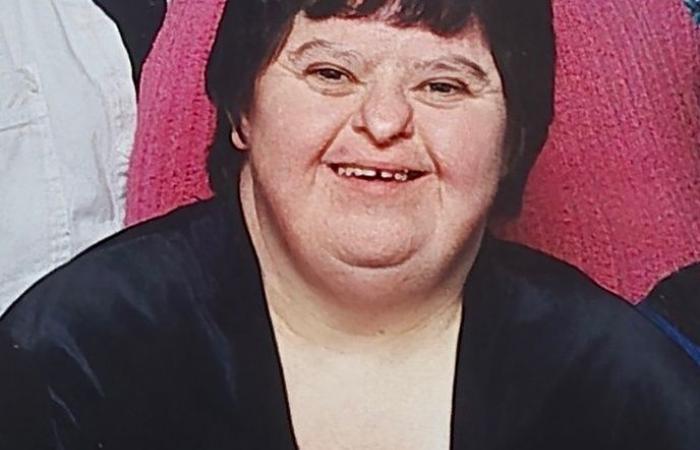The sister of a British Columbia woman with Down syndrome who died of starvation in Port Coquitlam in 2018 believes others will suffer the same fate if systemic changes are not made to the way people with intellectual disabilities are treated.
Published yesterday at 5:32 p.m.
Ashley Joannou
The Canadian Press
The coroner’s inquest into the death of Florence Girard, 54, will begin Monday in Burnaby, where a jury will hear the circumstances surrounding her death, when she weighed only about 50 pounds.
Her sister, Sharon Bursey, described Florence Girard as someone funny who loved spending time with her family.
She said that since her older sister’s death, people have come forward with similar stories of abuse against their family members.
“It’s terrible. I know this is going to happen again and we need to know why this can happen in Canada,” she said in an interview on Friday.
Mme Girard died while living with Astrid Dahl in a program for people with developmental disabilities, after her foster home closed.
In 2022, Astrid Dahl was found guilty of failing to provide the necessary things for M’s lifeme Girard. His original 12-month suspended sentence was increased to 15 months in prison by the British Columbia Court of Appeal.
The Kinsight Community Society oversaw the home sharing service in M’s caseme Girard, after being hired by the provincial crown corporation Community Living BC, under the aegis of the Ministry of Social Development and Poverty Reduction.
Court documents indicate that Mme Girard required around-the-clock care in virtually every aspect of his daily life, including monitoring his meals.
Records from 2012 showed that Mme Girard was healthy and at an appropriate weight, at 120 pounds. They argue that his appetite changed in the months before his death, but Mme Dahl did not arrange for her to receive medical treatment.
When she died in October 2018, she weighed 55 pounds, according to a September 2022 BC Supreme Court sentencing decision, but a document from July 2022 put her weight at around 50 pounds at the time of the autopsy. M’s last medical appointmentme Girard dates back to March 2014.
Mme Bursey said the last time anyone from the organization running the home-sharing program saw her sister was eight months before she died.
“I know there are all these protocols and manuals and rules, but it seems like none of them have been followed. My sister hadn’t seen a dentist in five years, nor a doctor in four years,” she said.
“There are no standards”
Tamara Taggart, president of Down Syndrome BC, an advocacy organization created after M’s deathme Girard, says there needs to be transparency about the systemic failures that led to his death.
“How could this happen? How can someone in state care starve to death when there are supposedly safeguards, controls, policies and all kinds of people supposed to monitor people who live in shared homes?
“I hope we can find out how this happens and where the failures are, so that we can then change the policy, or at least make recommendations, so that this never happens again.” »
Coroner’s inquests do not assign blame, but public officers are asked to make recommendations on how to prevent similar deaths from happening in the future.
Mme Taggart, whose son has Down syndrome, is expected to give evidence at the inquest.
She said people with developmental disabilities are treated very poorly and the people charged with caring for them are not treated very well either.
“There are systemic failures at all levels. There are no standards for care. »
According to Mme Taggart, about 4,200 people live in British Columbia in shared housing, but information about the Crown corporation and government-funded agencies responsible for these programs is not always made public.
“We can’t have it both ways. We cannot receive hundreds of millions, or even a billion dollars, to take care of people and not be transparent about how we take care of them. We don’t know how many people are dying in health centers. We don’t hear about it unless a family member comes forward.
“My only goal is to find out what happened, identify the systemic failures and ensure that this never happens again, so that Florence’s death is not in vain. Its legacy must be systemic change. »






